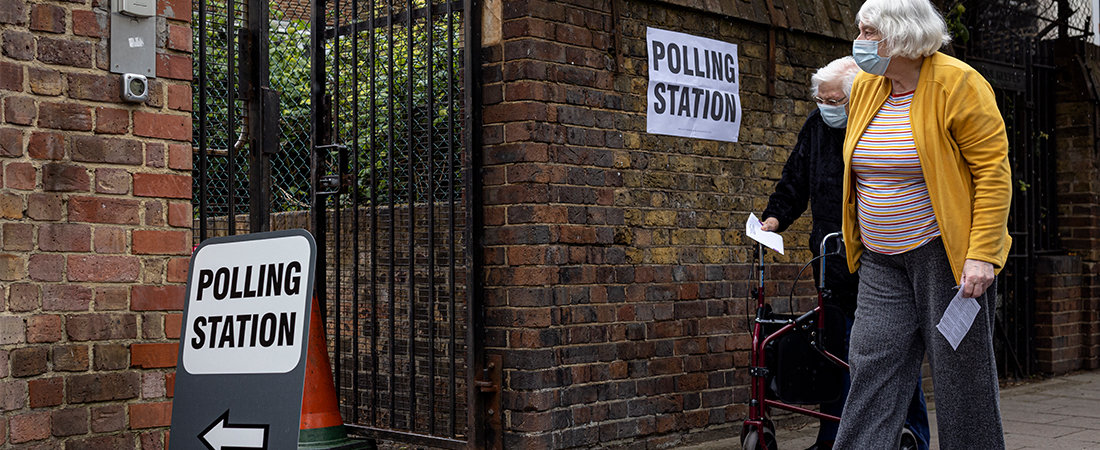These were strange elections and they’ve perhaps had more of an impact than was expected. The pandemic led to a more sanitised campaign. But the results have really caught people’s attention and highlighted the important role incumbency plays in the UK and that the Conservatives understand how best to use this to their advantage.
As the 2020 elections were postponed, these were the largest set of elections to ever take place, and the first major ones to take place since the pandemic. This was a litmus test on how the public view the Government’s response to Covid-19 and how the levelling-up agenda is being received in former Labour strongholds. And they asked fundamental questions about the future political landscape in the UK:
- Could the Conservatives continue to tear through traditional Labour heartlands and make gains?
- Is Keir Starmer cutting through with the electorate?
- And how would incumbents fare at the ballot box in the midst of an unprecedented national and global disaster?
Unsurprisingly, Labour’s Andy Burnham and Steve Rotheram swept through in the first round and of course, although perhaps not the landslide victory the polls initially predicted, Sadiq swept past Shaun Bailey with relative ease. Both the SNP and Labour held on in Scotland and Wales, but in target areas for both Labour and the Conservatives – namely, Tees Valley and the West Midlands – the Conservatives were once again successful.
It is obvious that incumbency now plays a significant role in regional politics – helped of course by the national political landscape – but also spurred on by the rise of personality politics and the careful development of personal political ‘brands’.
These easily recognisable, strongly branded individuals such as Sadiq Khan, Andy Burnham and more interestingly, Ben Houchen and Andy Street, who have helped demolish Labour’s red wall, have helped to create a new type of politician based on localised personality politics.
The Government recognise how this helped them win nationally in 2019. The push for more unitary and combined authorities shows they understand how this translates at the ballot box. Placing high-profile individuals in targeted areas helps the public associate the rising the levels of investment in these areas with the Government – something which has come to characterise the levelling-up agenda to date through The Towns Fund, Community Renewal Fund, and Levelling-Up Fund.
So, the more important questions we should be asking are longer-term.
Will the Conservatives completely reform their electoral strategy, abandoning cities which have the type of demographics they now seem to fail in winning over; young people; metropolitan liberals and Remainers? With Brexit done and presumably the pandemic also over, is this the start of a partial redrawing of the UK’s political system?
These regional races could be showing us the future of the UK’s entrenched, electoral voter coalitions. Traditional Labour-voting working-class people living in former industrial areas side with the Conservatives and the liberal elites living in cities vote Labour.
We know that incumbency will play a much greater role in the way local leaders are elected in the future and the way in which political parties can win.
But more importantly, the elections have shown that the Conservative Party understand the value that local leaders can bring them at a Parliamentary level. That local leaders can help anchor the Party’s regional levelling-up agenda and promote the direct investment the Government funnels into these areas. This is how the Conservatives will be judged at the next general election.
They are literally reshaping local government and the future political landscape in England – to ensure that personality based, high-profile regional individual leaders are their ticket to another term in power.

